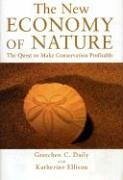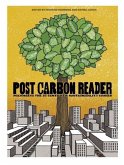Why shouldn't people who deplete our natural assets have to pay, and those who protect them reap profits? Conservation-minded entrepreneurs and others around the world are beginning to ask just that question, as the increasing scarcity of natural resources becomes a tangible threat to our own lives and our hopes for our children. "The New Economy of Nature" brings together Gretchen Daily, one of the world's leading ecologists, with Katherine Ellison, a Pulitzer-prize winning journalist, to offer an engaging and informative look at a new "new economy" -- a system recognizing the economic value of natural systems and the potential profits in protecting them.Through engaging stories from around the world, the authors introduce readers to a diverse group of people who are pioneering new approaches to conservation. We meet Adam Davis, an American business executive who dreams of establishing a market for buying and selling "ecosystem service units; " John Wamsley, a former math professor in Australia who has found a way to play the stock market and protect native species at the same time; and Dan Janzen, a biologist working in Costa Rica who devised a controversial plan to sell a conservation area's natural waste-disposal services to a local orange juice producer. Readers also visit the Catskill Mountains, where the City of New York purchased undeveloped land instead of building an expensive new water treatment facility; and King County, Washington, where county executive Ron Sims has dedicated himself to finding ways of "making the market move" to protect the county's remaining open space.Daily and Ellison describe the dynamic interplay of science, economics, business, and politics that isinvolved in establishing these new approaches and examine what will be needed to create successful models and lasting institutions for conservation. "The New Economy of Nature" presents a fundamentally new way of thinking about the environment and about the economy, and wit
Hinweis: Dieser Artikel kann nur an eine deutsche Lieferadresse ausgeliefert werden.
Hinweis: Dieser Artikel kann nur an eine deutsche Lieferadresse ausgeliefert werden.








